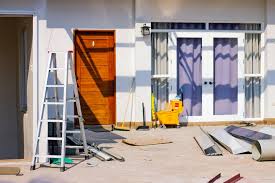Thinking about fixing up your home but your wallet says no? Well, there may be some good news in the form of government grants. Let’s dive into how these can help and how an auditing management tool is your golden ticket to those much-needed home improvements.
Government Grants for Home Improvements
These grants and financial support are intended to make energy efficiency more accessible and affordable for Canadians, while also helping to reduce the overall carbon footprint of residential homes.
- Federal Grants
Canada Greener Homes Grant: This is a federal initiative applicable regardless of where you live in Canada. Launched in spring 2021, it’s set to run until 2028, offering up to $5,000 to help households make energy-efficient upgrades like insulation, door and window replacement, or solar panel installation. The grant also includes up to $600 to cover the cost of home evaluations, both before and after renovations, to guide your decisions and verify improvements.
- Provincial Grants
Here is the overview of grants in some provinces:
Alberta
- The province provides a detailed array of grants for home renovations aimed at improving energy efficiency.
- SHARP (Seniors Home Adaptation and Repair Program) is available to help seniors with necessary home modifications.
- The Clean Energy Improvement Program provides loans for green renovations, repayable through property taxes.
Ontario
- Home renovation grants are available to assist with energy-efficient home upgrades.
- The Ontario Green Investment Fund provides financial support for projects that reduce energy use and emissions.
British Columbia
- A comprehensive list of home renovation grants is available for various energy-efficient upgrades.
- Programs specifically tailored to assist seniors with home improvements to ensure safety and independence.
- BC Hydro provides rebates for replacing doors and windows with eligible products, upgrading home insulation, or purchasing more energy-efficient water heaters
Manitoba
- Grants are offered for home renovations that aim to reduce energy consumption.
- Efficiency Manitoba supports homeowners with incentives for implementing energy-saving upgrades.
Quebec
- The province offers grants for various home renovations to improve energy efficiency.
- The Rénoclimat program provides support for renovations that enhance energy conservation and promote greener living.
These grants encourage people to make renovations that are comfortable for living and will contribute to Canada’s environment. The range of grants available can cater to a wide variety of home improvement needs. Some grants focus on upgrades like installing high-efficiency furnaces or water heaters, while others may support broader renovations that improve overall energy efficiency.
How to Apply for Grants
Applying for grants may seem daunting, but with the right approach, it’s quite manageable.
- Start by gathering all necessary documents, which typically include proof of ownership, identification, and sometimes a recent tax assessment or utility bill.
- Next, you’ll need to have your home assessed by a certified energy advisor— this is where an auditing management tool becomes crucial. This tool helps advisors provide a detailed and accurate assessment of your home’s energy usage and potential improvements. With their report in hand, you can then pinpoint which grants you’re eligible for and begin the application process.
- Carefully follow the guidelines set out by each grant program, as missing information can delay or even derail your application. Once everything is submitted, the waiting game begins. If all goes well, you’ll receive approval and can commence with your home improvements.
Mistakes to Avoid
When applying for government grants, be sure to avoid the following mistakes:
- A common mistake in applying for grants is not following the application instructions to the letter, which can lead to unnecessary delays.
- Another pitfall is undertaking renovations before the grant approval, which may disqualify you from receiving the funds.
- It’s also important to ensure that the improvements are carried out by certified professionals when required by the grant program, as DIY projects may not meet the criteria for reimbursement.
Extra Help You Didn’t Know About
In addition to grants, there may be tax incentives, rebates, and low-interest loan programs available to help finance your home improvements. Some utility companies also offer rebate programs for customers who make energy-efficient upgrades. It’s a good idea to research all the financial assistance options in your area because combining these resources can significantly lower the out-of-pocket costs for your renovations.
Investing in home upgrades goes beyond aesthetics, it’s about improving your home’s functionality and efficiency. Energy-efficient homes often have a higher market value and appeal more to buyers, meaning that if you decide to sell, your investments could lead to a higher sale price. Additionally, these upgrades can contribute to a more sustainable environment by reducing your home’s carbon footprint and aligning your values with your living space.
Make sure to check these grants before making your homes eco-friendly.

